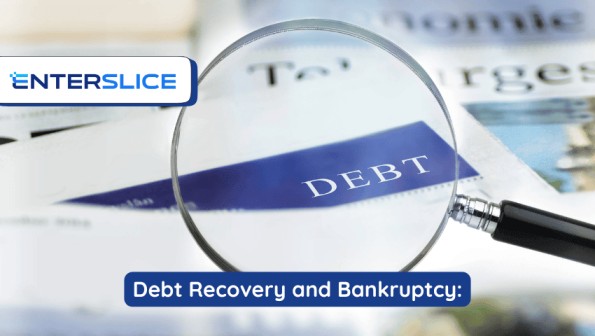
Learn how debt recovery works in bankruptcy cases, legal remedies, and strategies to protect your business.
Bankruptcy is a legal state declared when an individual or company is unable to repay outstanding debts. In India, this process is governed by the Insolvency and Bankruptcy Code (IBC), which was introduced in 2016. The IBC provides a time-bound framework for resolving insolvency, either through restructuring or liquidation.
For creditors, bankruptcy represents both a challenge and an opportunity. While it indicates the debtor’s inability to pay in full, it also ensures a formal process for recovering dues under judicial supervision.
When a debtor files for bankruptcy, creditors cannot independently pursue recovery actions. Instead, claims must be submitted to the insolvency resolution professional or court-appointed authority. The steps usually include:
Filing a claim – Creditors submit proof of debt within the prescribed timeline.
Formation of a creditors’ committee – This committee makes decisions regarding the debtor’s resolution plan.
Resolution or liquidation – If restructuring is viable, creditors may receive payments under a resolution plan. If not, assets are liquidated and proceeds distributed.
Priority of claims – Secured creditors are prioritized over unsecured ones, and operational creditors often face reduced recoveries.
The entire process ensures transparency but can take months, sometimes years, depending on the complexity of the case.
Bankruptcy cases often involve prolonged legal procedures. Creditors may have to wait longer than expected to receive even partial payments.
When the debtor’s assets are insufficient, creditors rarely recover the full amount owed. For unsecured creditors, the recovery rate can be especially low.
Understanding insolvency laws requires expertise. Businesses without legal support may find it difficult to file claims correctly or on time.
While legal recovery ensures compliance, it may strain future business relationships with debtors or associated partners.
Even before bankruptcy proceedings arise, businesses can adopt preventive and strategic measures to safeguard against defaults.
Ensure contracts clearly define payment timelines, interest on delays, and dispute resolution clauses. This provides a solid foundation for debt recovery.
Before extending large amounts of credit, evaluate a client’s financial health. Credit checks and market reputation analysis can reduce the risk of defaults.
Don’t wait until payments are months overdue. Initiating gentle reminders and structured follow-ups at the earliest stage increases the likelihood of recovery.
Engaging experts in debt recovery ensures compliance with legal requirements and maintains professionalism in communication.
Before bankruptcy becomes inevitable, legal notices and arbitration may resolve disputes faster than court proceedings.
The IBC has transformed debt recovery in India by introducing structured timelines and resolution mechanisms. Creditors can initiate insolvency proceedings if a payment default of over ₹1 crore occurs. Once admitted by the tribunal, the debtor’s management is replaced by a resolution professional, ensuring impartial handling of assets.
For businesses, the IBC is both a tool for recovery and a signal to tighten financial discipline. While it cannot guarantee full repayment, it provides a fair and transparent platform to maximize recoveries.
Navigating bankruptcy without legal expertise can be risky. Filing incorrect claims, missing deadlines, or misinterpreting rights may lead to financial losses. Enterslice provides businesses with legal advisory, insolvency representation, and claim management support to ensure the best possible outcome.
Our team works closely with insolvency professionals and creditors’ committees, helping clients secure their rightful dues while complying with regulations. Whether it’s drafting recovery strategies, filing claims, or participating in resolution plans, professional guidance is crucial.
While both deal with unpaid dues, they differ significantly:
Understanding this distinction helps businesses know when to escalate matters and when to engage insolvency professionals.
While no business can completely eliminate the risk of defaults, preparation minimizes damage. Steps include:
Preparedness ensures that even if a client goes bankrupt, your business remains resilient.
Debt recovery and bankruptcy are two sides of the same coin in the business world. While debt recovery focuses on reclaiming unpaid dues directly, bankruptcy introduces a legal process for fair distribution among creditors.
For businesses, the key is to act early, strengthen contracts, and seek professional guidance when needed. Enterslice brings years of expertise in debt recovery, insolvency advisory, and compliance, helping companies navigate complex financial disputes with confidence.
Unpaid dues should not jeopardize your growth. With the right strategy, legal backing, and advisory, you can protect your interests and focus on what matters most—growing your business.
1. What happens to creditors when a debtor declares bankruptcy?
Creditors must file claims with the insolvency professional, and recoveries are distributed based on the priority of claims under the law.
2. Can debt recovery continue after bankruptcy is filed?
No. Once bankruptcy proceedings begin, independent recovery actions stop. Creditors must follow the insolvency process.
3. What is the difference between insolvency and bankruptcy?
Insolvency refers to the financial state of being unable to pay debts, while bankruptcy is the legal declaration of insolvency.
4. How can businesses prevent debt recovery issues?
By drafting strong contracts, conducting credit checks, and acting early on overdue payments, businesses can reduce risks significantly.
5. How long does the bankruptcy recovery process usually take?
The duration varies depending on the case, but under the Insolvency and Bankruptcy Code, resolution is expected within 180 to 330 days. Complex cases, however, may take longer.
6. Do secured creditors always get full recovery in bankruptcy?
Not always. Secured creditors have priority, but recovery depends on the value of the debtor’s assets. If assets fall short, even secured creditors may face partial losses.
7. Is it possible to negotiate with debtors before bankruptcy proceedings?
Yes. Many disputes are resolved through negotiation, settlements, or arbitration before reaching bankruptcy courts. Early intervention often increases recovery chances.
8. Can small businesses use professional debt recovery services?
Absolutely. Debt recovery services are not just for large corporations. Small and medium businesses often benefit the most by outsourcing recovery to professionals who ensure legal compliance and efficient handling.
© 2024 Crivva - Business Promotion. All rights reserved.